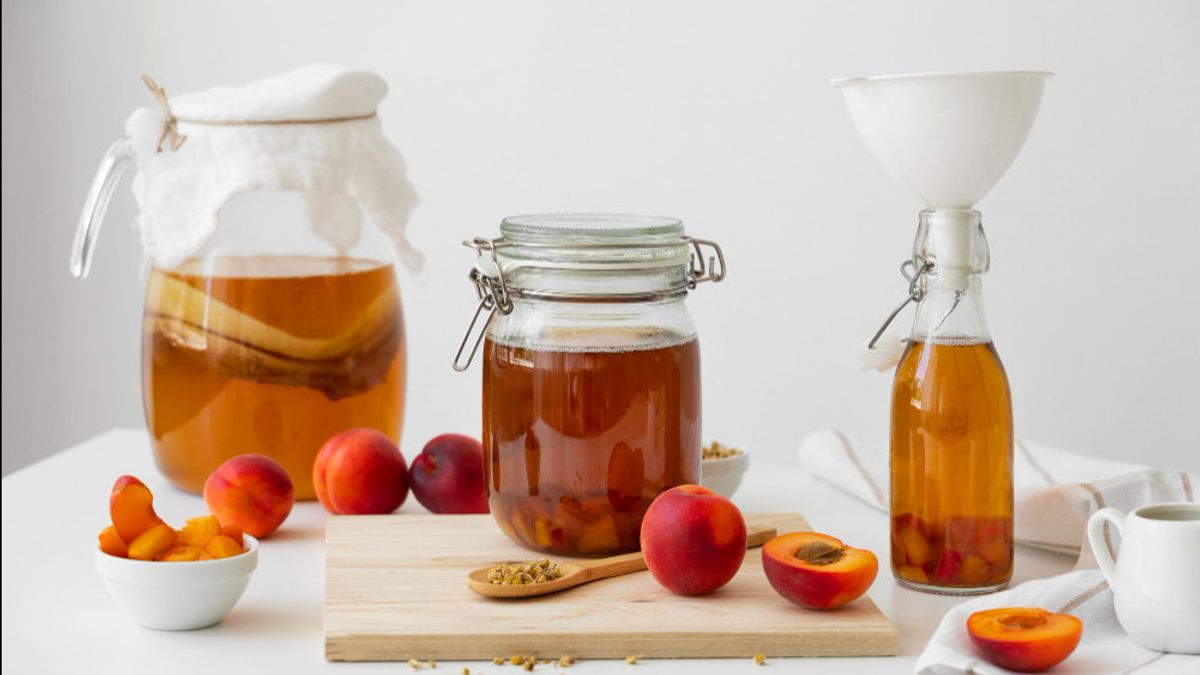YOGYAKARTA - fermented products are widely sold in the market and are in demand by some people. Fruits and vegetables are often fermented materials. This processing method is considered to increase the benefits that were previously found in fruits and vegetables.
Fermentation is a natural food and beverage preservative procedure. In addition to the large number of fermented products, many ask whether fermentation is halal? The process of fermentation in food and beverages can produce alcohol content.
In the fermentation process, microorganisms such as yeast and bacteria change the content of carbohydrates such as sugar and starch into acid or alcohol. Given the presence of alcohol, then how is it legal to consume fermented foods and drinks according to religion?
Many Muslims think about eating fermented foods and drinks because there is alcohol in them. However, not all of these fermented products have mild effects.
When referring to the Al-Quran, it is stated that khamr' or something lecherous is something that is prohibited from being consumed. Does it mean that fermented foods and drinks containing alcohol are also forbidden?
It should be noted that the fermentation process makes alcohol levels in fruits and vegetables increase. Beyond the problem of whether or not it is illegal, alcohol content is also dangerous for anyone who consumes it. If it causes dangerous effects, food and drinks are considered haram.
This explanation is in accordance with the Hadith of Nabi saw which later became the rule of fiqhiyyah:
Laa dhoror wa laa dhiroor. (HR. Al-Baihaqi, Al-Hwakim, etc.).
Meaning: There should be no danger and should not harm others.
The rules regarding illicit products are also mentioned in the MUI Fatwa No. 10 of 2018 concerning Food and Beverage Products Containing Alcohol/Etanol. In this fatwa, it is stated that only ethanol comes from khamr which cannot be used for halal products because it is haram and unclean.
If it does not come from the khamr industry, then other types of ethanol can be used by taking into account the limits set in the fatwa. For example, synthetic ethanol or the results of the non-khamr fermentation industry.
To find out whether the halal law or not is fermented fruit and vegetables, Ustaz Syam's explanation in the Islamic event It's Indah Trans TV can be a reference. Ustaz Syam said that not all the fermented foods and drinks made khamr.
"For example, wine juice, if fermented it can be wine and it is haram. Then fermented it again can be vinegar and it's halal," said Ustaz Syam.
Ustaz Syam also said that the Prophet Muhammad SAW had consumed fermented drinks. This drink is in the form of a immersion as narrated in a hadith.
"Rasulullah SAW once made a immersion in one vessel. Then, he drank it that day, tomorrow and the next day again," (HR Muslim).
Ustaz Syam said that fermented foods and drinks can be consumed, as long as the material was originally in the form of something halal. In addition, Ustaz Syam also emphasized that it should be guided by MUI regarding the limitation of alcohol content in food and beverages.
That's a review of whether fermentation is halal? If it refers to the MUI fatwa as long as ethanol is not from the khamr industry and does not cause dangerous effects, then it is not allowed. Also read 7 Indonesian fermented foods other than tempeh.
Stay up to date with the latest domestic and other overseas news on VOI. We present the latest and updated information nationally and internationally.
The English, Chinese, Japanese, Arabic, and French versions are automatically generated by the AI. So there may still be inaccuracies in translating, please always see Indonesian as our main language. (system supported by DigitalSiber.id)













